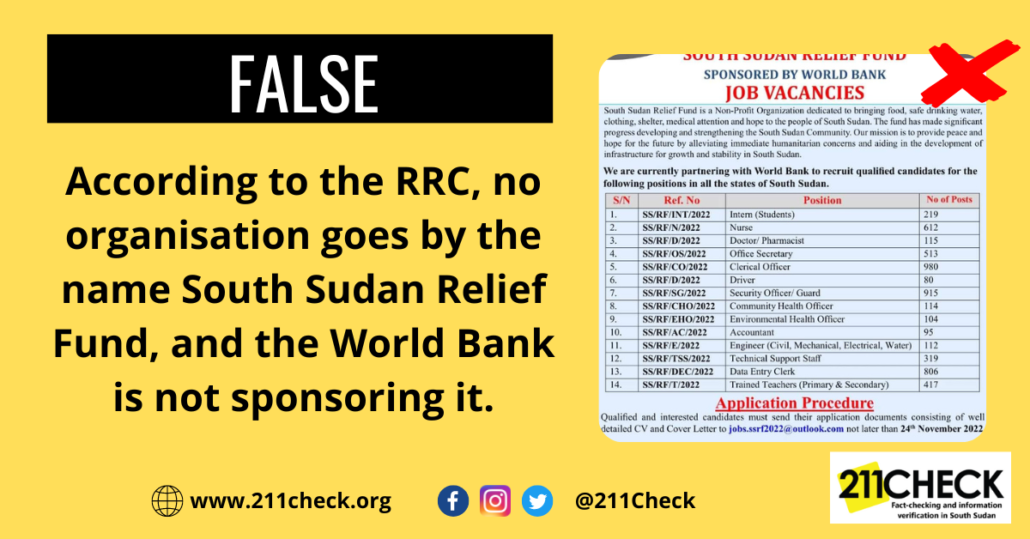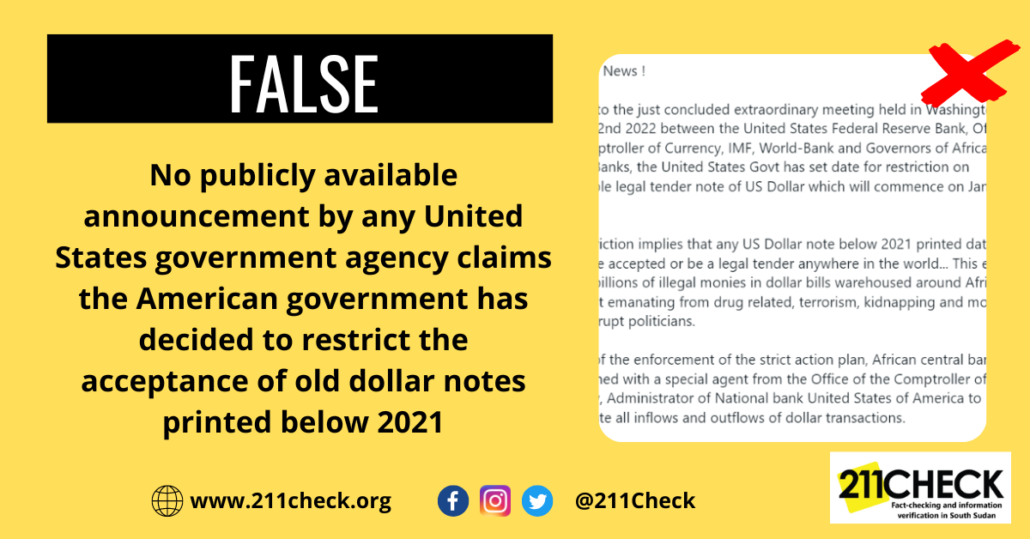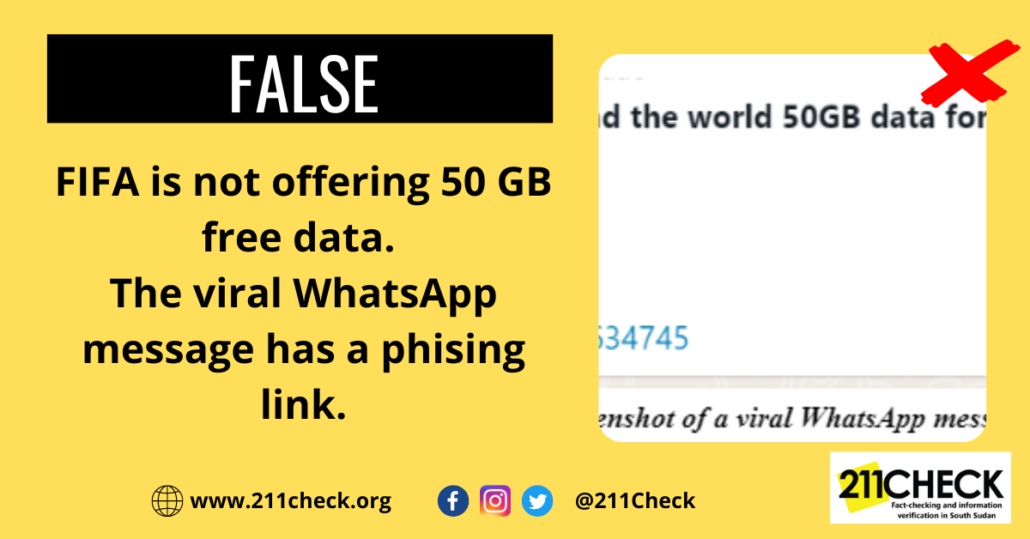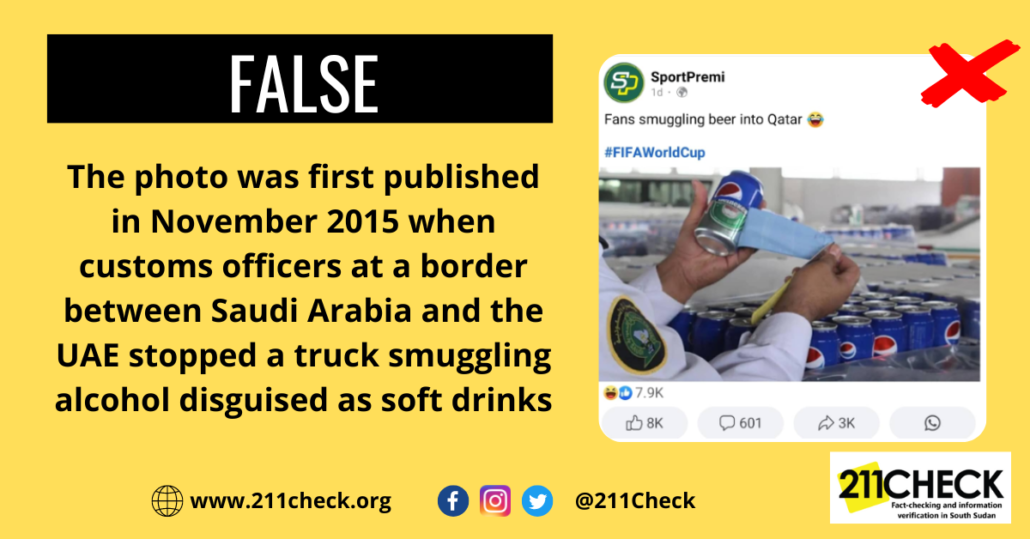Fact-check: No, the World Bank is not funding jobs through the South Sudan Relief Fund
According to the RRC, no organisation goes by the name South Sudan Relief Fund, and the World Bank is not sponsoring it.
By Ochaya Jackson
A one-page document trending on WhatsApp claiming that the South Sudan Relief Fund, in collaboration with the World Bank, is offering job opportunities is false.
According to the document, the South Sudan Relief Fund is a humanitarian non-governmental organisation whose mission is to “provide peace and hope” to the community by providing aid.
“South Sudan Relief Fund is a Non-Profit Organization dedicated to bringing food, safe drinking water, clothing, shelter, medical attention and hope to the people of South Sudan. Our mission is to provide peace and hope for the future by alleviating immediate humanitarian concerns,” part of the document reads.
“We are currently partnering with [the] World Bank to recruit qualified candidates for the [following] positions in all the states of South Sudan,” the document states.
Intern, nurse, doctor/pharmacist, office secretary, clerical officer, driver, security guard, community health officer, environmental health officer, accountant, engineer, technical support staff, data entry clerk, and trained teachers are among the over 1,000 job openings with an application deadline of November 24, 2022, on the false advertisement.
The image format of the document in circulation
However, 211 Check finds that the document is neither genuine nor from the right institution. The document header bears the Sudan Relief Fund logo at the left edge and the World Bank at the right, but beneath it takes the name “South Sudan Relief Fund,” which contradicts or points to a scam.
The email address to which the applicants are to send their documents is a private one without the domain of the organisation, which is uncommon and lacks both the stamp and signature.
A search on the Google engine about South Sudan Relief Fund returned no results for an organisation with such a name at the time of publication, but the claim impersonates the Sudan Relief Fund.
There are no job vacancies advertised currently by Sudan Relief Fund on its website after a search was performed, however.
And the World Bank website does not show any partnership with South Sudan Relief Fund to sponsor job vacancies.
Conclusion:
There is no organisation called the South Sudan Relief Fund in the registrar’s database for nongovernmental organisations at the South Sudan Relief and Rehabilitation Commission. Still, the claim impersonates the Sudan Relief Fund organisation to scam people with job vacancies.
And the World Bank is not sponsoring any job vacancies in partnership with the non-existent South Sudan Relief Fund.
This fact check was published by 211 Check with support from Code for Africa’s PesaCheck and the African Fact-Checking Alliance.





